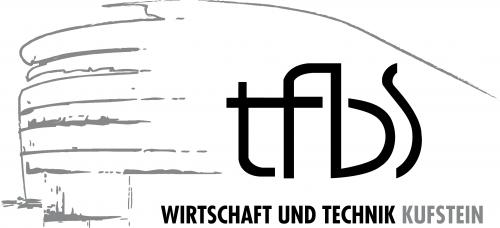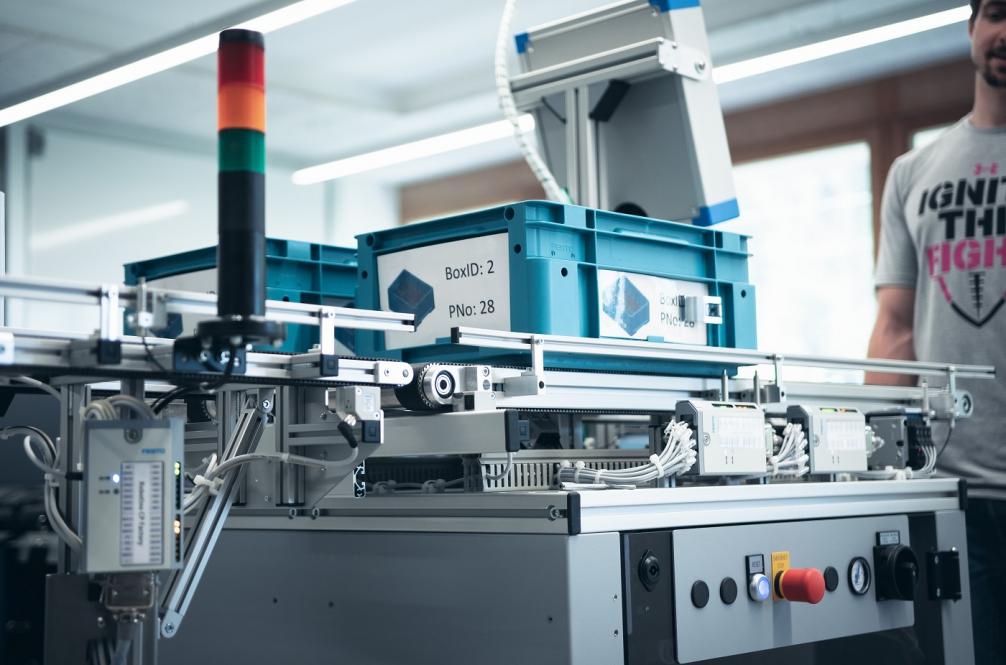"How I met my future job"
Ursula:
Hello everybody!
I am Ursula Weingartner, member of AG 3 for the Tyrolean Region.
I am looking forward to present you one of our projects, which I believe, is already and will be further a very promising way for young men and women to meet their future job.
My questions on the project called „smart factories – connected learning“ will be answered by one of the founders of this initiative who knows best about it:
Gerhard Rinnergschwentner, Head of Tiroler Fachberufsschule Kufstein-Rotholz, a dual vocational school which is focused on mechatronics, the economics and milk-technologies.
We meet at the laboratory of the school.
Dear Gerhard, thank you for being here with us today!
Gerhard:
Good morning! It’s a pleasure to be here.
Frage 1:
You were involved and dedicated to the project from its start.
How did this innovative idea for the project “smart factories” come about, when did the project start?
“Smart factories” was founded by the two entrepreneurs Stihl Tirol and Kufgem and two schools, the University of Applied Science Kufstein and our vocational school, especially the mechatronical part in the year 2018.
The project simulates a full automated factory with three places of location. Thereby many tasks about digitalisation are visualized, simulated and trained. All kinds of soft skills are trained by making for example computer sticks or torch lights.
Frage 2:
Did encounter play a role in it or was it all on track from the start?
Encounter didn`t play a role in it. It was all on track from the beginning on. A big platform called i-ku was headquarter. This is a platform for innovations founded in the year 2017 with the aim to make the digitalisation in our area stronger!
Frage 3:
Which partners and organisations fund the project or support it in different ways?
The Tyrolean government funded the project with 500.000 Euros. Stihl supported us with its ideas, their employees and some money. The University of Applied Science supported us with their students and equipment.
Frage 4:
Do you recall steps or developments in the project that would not have been made or done in this way, if it was not because of the young participants, the pupils that are trained?
A central part of this project played our pupils and the students of the University of Applied Science and apprentices of both companies. They brought their own ideas into the project, worked in a network and one learned from the other in connected learning ways!
Frage 5:
Which are the results we can present until now?
In other words, how many young man and women take and took part in the project?
Firstly, there were involved about 100 young people. It is interesting that also young women worked in this technological project of digitalisation. About 20% all in all. We are proud about this situation!
Frage 6:
Do you see a chance and possibility to go on with the project even after the “Initiative for Digitalisation” ends?
Dear Ursula!
This platform of digitalisation has no end. Our country Tirol and Austria are prepared, they want to push on this important way and fund our digitalisation in the future.
Ursula:
Thank you very much, Gerhard, for your time and your statement.
To the viewers:
If any questions should arouse or if you need any further information on the”smart factories-project”, please contact us and let us know.
You will find our contact in the documentary on the 4th Forum.
Gerhard und Ursula:
See you, bye bye!

